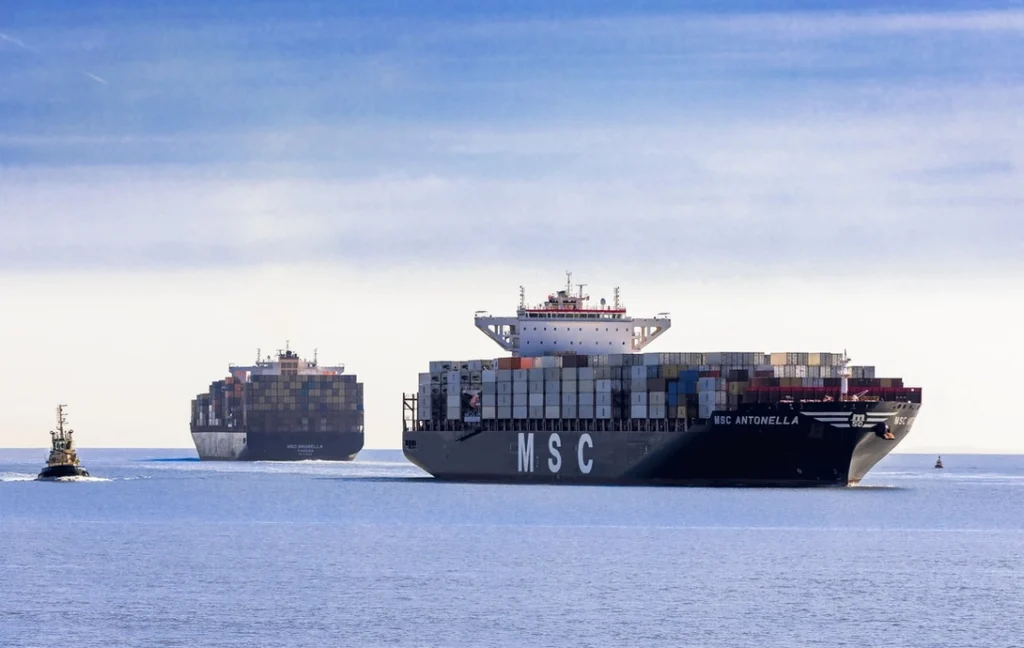A new MSC direct Asia–Mozambique shipping service opens investment and trade opportunities for regional private sectors.
Strategic Expansion in Global Trade Routes
Global shipping leader MSC (site) has launched a new dedicated liner service, dubbed the “Cheetah” service, connecting Asia directly with Mozambique. According to the company, the inaugural voyage of the MSC Sheffield III (voyage FH545A) is scheduled to depart from Singapore on 3 November 2025.
By running a standalone route, which will call at Singapore, Colombo, Beira and Nacala, the service is designed to be faster, more reliable and better tailored to key cargo types such as vehicles, electronics, textiles and chemicals.
Implications for Investment and Logistics
For business professionals and investors operating in Africa trade corridors, this route signals a meaningful shift. Mozambique is a rising market with expanding infrastructure and port capacity; enhanced direct connectivity to Asia may stimulate investment in logistics hubs, warehousing and value-added services.
The new service offers an opportunity for supply chain diversification: freight moving from Asia to Africa (and potentially onwards to Gulf or via trans-shipment) now faces fewer transits and simpler routing. That situation could reduce risk and cost for Gulf firms seeking African expansion, or African exporters aiming for Asian and Gulf markets leveraging the Asia-Mozambique connection.
Trade Policy and Regional Connectivity Benefits
From a trade-policy perspective, the direct service reinforces regional trade connectivity and supports Mozambique’s role in an expanded Indian Ocean trade ecosystem. According to Club of Mozambique, the service “offers faster transit times to and from Mozambique’s expanding market, along with a reliable and flexible standalone MSC service”. In practical terms, fewer trans-shipments mean reduced exposure to delays, demurrage and complex tariff layers—thus improving efficiency for importers and exporters. For Africa-GCC policymakers, this strengthens the case for complementary infrastructure investment in ports like Beira or Nacala and for policies encouraging private-sector logistics partnerships.
Private-Sector Opportunities and Next Steps
For private-sector players in shipping, manufacturing, and trade services, the Cheetah route opens new commercial pathways. Logistics firms in Africa can explore service offerings around this corridor: bonded warehousing in Mozambique, regional distribution hubs, inland logistics connecting to neighboring markets (e.g., land-linked southern Africa) and integrated logistics for key commodity sets listed by MSC (vehicles, electronics, textiles, chemicals).
In the coming months, tracking transit-time performance, port-turn efficiency in Mozambique and cargo uptake will be critical indicators of how transformative the route becomes. Investors might monitor port infrastructure spending in Mozambique and evaluate synergies with Gulf-based logistics ecosystems.
Final Thoughts
The launch of MSC’s Cheetah service between Asia and Mozambique represents more than a shipping-line move, it presents a realignment of logistics and trade possibilities across the region. For investors, policy-makers and private-sector operators, the timing is opportune: direct Asia-Africa connectivity offers a strategic advantage, particularly as Gulf economies seek deeper engagement with the African continent and as African markets aim to plug into Asian supply chains. Ensuring supporting infrastructure, regulatory frameworks and private–public collaboration will determine whether this route becomes a genuine catalyst for trade and investment growth.
For more stories of African trade, visit our dedicated archives.
